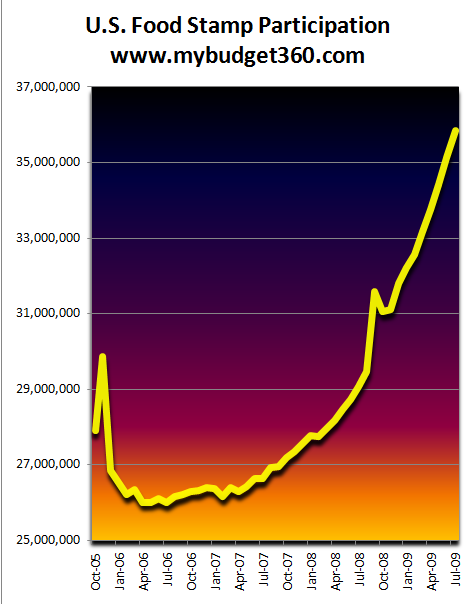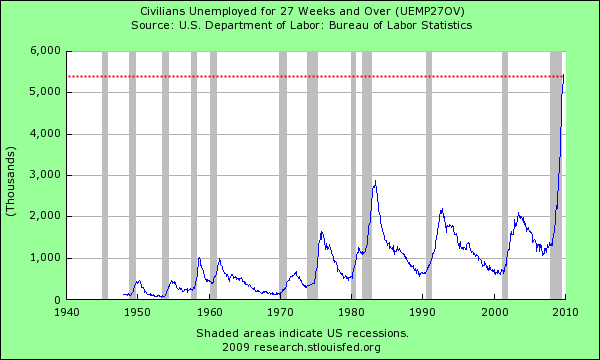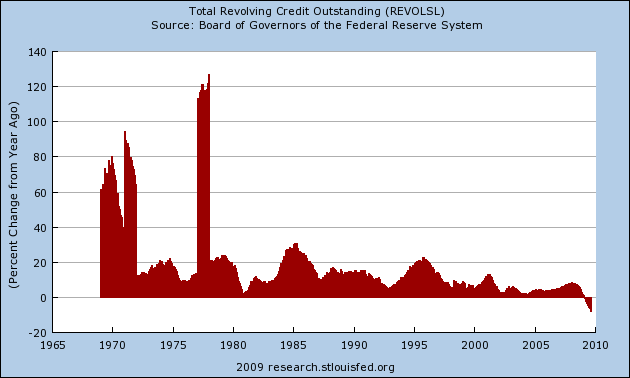Edito's note: Hooman Majd describes himself as one of the few people in the world who is both fully Iranian and completely American. Majd, raised in the U.S., is a distant relative of former Iranian President Mohammed Khatami, and his ability to navigate between American and Iranian culture as an insider gives him a unique perspective on two countries in conflict.
In his book, The Ayatollah Begs to Differ: The Paradox of Modern Iran, Majd reveals an Iran that is anything but homogeneous. It is, like the U.S., a country embroiled in a profound culture war between social conservatives and liberal urbanites; a country in which the population perceives itself as the aggrieved, not the aggressor. He writes, "It strikes me often when I am in Iran that were Christian evangelicals to take a tour of Iran today, they might find it the model for an ideal society they seek in America. Replace Allah with God, Muhammad with Jesus, keep the same public and private notions of chastity, sin, salvation and God's will, and a Christian republic is born."
Majd's book is a much-needed antidote to the simplistic narratives about Iranian culture and politics embraced by the Western media. In the excerpt below, he discusses some of the crucial misconceptions that many Americans hold about Iranians' attitudes towards their controversial president, Mahmoud Ahmadinejad, the country's nuclear energy program and relations with the United States.
*****
On a hot night a few days after Ahmadinejad's inauguration in August 2005, in a comfortably air-conditioned hired car in Tehran, I sat next to the college-educated driver, a clean-cut man in his late twenties who, with his impeccably clean car, manner, and dress, could easily be from the wealthy tree-lined neighborhood in the north of the city where I was headed. When I asked him about the elections that had brought Ahmadinejad to power, the subject of every conversation in Tehran at the time, he pointed to a group of girls in the car next to us: heavily made-up, on their cell phones, and with scarves barely covering their wellcoiffed heads. "Some people," he said, "think that freedom means men being able to wear shorts or women to go about without the hijab. Others think that freedom means having a full belly." He paused for a moment. "There's just more of the latter," he said, forcefully changing gears as if to emphasize the point, which I took to mean that he had voted for the president. When we arrived at the slick apartment building that was my destination, I felt almost embarrassed that to him I must have represented one of the people who, with a stomach about to be made full, felt that freedom did indeed mean that people might dress as they please. But there was no tension in the car, and in fact he enthusiastically engaged in the most traditional form of ta'arouf, which in a taxi ride means having to sometimes beg the driver to take your money.
Western observers often define ta'arouf as extreme Iranian hospitality, or as a Persian form of elaborate etiquette, but since Westerners naturally engage in ta'arouf too (as everyone who has ever complimented a host or hostess on what was actually a bad meal knows), it's easy to miss its true significance and its implications in Persian culture. The white lies that good manners dictate we tell in the West and general polite banter or gracious hospitality cannot begin to describe what for Iranians is a cultural imperative that is about manners, yes, but is also about gaining advantage, politically, socially, or economically, as much as anything else. One might be tempted to think of ta'arouf as passive-aggressive behavior with a peculiarly Persian hue, but although it can be, it cannot be defined solely so. American businesses and businessmen are known to succeed with brashness, determination, and sometimes even a certain amount of ruthlessness; Iranian businessmen succeed rather more quietly with a good dose of ta'arouf and in such a way that doors are opened before the ones opening the doors realize they have done so.
While ta'arouf defines Persian social interaction outside the home (and is engaged in only with guests inside), by definition it cannot be employed in anonymity, which perhaps explains some contradictory Iranian behavior. Foreign observers of Iran have often remarked on how demonstrators in the streets, yelling at the top of their lungs about the evil nature of America or Britain, will, when confronted individually, rather sheepishly explain that they're not really anti-American or anti-Western. But this is the essence of ta'arouf: as long as they were anonymous, they could say whatever they wished, insulting though it may have been, but when they are face-to-face with a person who might take offense, politeness takes over. "I have fond memories of America."
Mahmoud Ahmadinejad had counted on my taxi driver's definition of freedom, or really on the Iranian preoccupation with rights, or haq, which define that freedom, in his campaign for president in 2005. Ta'arouf and the preoccupation with the issue of haq form two aspects of the Iranian character that are key to understanding Iran, but are often overlooked or misunderstood by non-Iranians. The concept of ta'arouf goes way back in Iranian history, and if it is true, as some historians maintain, that nations that fell to the Persian Empire were often happy collaborators with their conquerors, perhaps the Persians' ta'arouf enhanced their reputation as benevolent rulers, as did their emphasis on rights (it was Cyrus the Great, after all, who had the world's first declaration of human rights inscribed on a cylinder at Babylon).
Although Ahmadinejad, like all Iranians, is a keen practitioner of traditional ta'arouf, he almost invariably balances his more streetlike ta'arouf with assertions of haq. His deceptively blunt language has always been laced with ta'arouf, just as much as it has been an unequivocal defense of haq. Even though it may seem that in his provocative speeches at the UN he has always singled out the United States as an evil enemy, he in fact has not mentioned the United States (or any individual American) by name even once, classical ta'arouf that not only deems it impolite to insult directly (and he might have given a lesson on ta'arouf to his friend Hugo Chávez, at least in 2006, when Chávez labeled George Bush as Satan at the UN) but also can include an obvious, but easily retractable, accusation. When in 2007 Ahmadinejad, contrary to diplomatic norms for nations that do not recognize each other, sat and intently listened to George Bush's speech at the UN (while the entire American delegation walked out on his), he was engaging in silent ta'arouf, a ta'arouf that sought to show the world that he was clearly the more reasonable man, and a lesson not lost on his audience back home. But while other Iranian leaders, silver-tongued and not, may have chosen to extend polite ta'arouf to even discussions of their nation's rights, Ahmadinejad generally employed the darker and more subtle form on the international stage.
When Ahmadinejad arrived in New York in 2006 to attend the UN General Assembly, because of his standing up for the haq of Muslims everywhere and because of the recent war in Lebanon, where Hezbollah, openly backed by Iran, had been able to claim a victory of sorts over the Israelis, his stature in the Muslim world, at least on the streets of the Muslim world, was at an all-time high. And he knew it: Ahmadinejad had a hubristic air about him every time I saw him, even while he enthusiastically engaged in ta'arouf that might come across merely as polite behavior to Americans but held greater meaning for Iranians. He had given an interview to Mike Wallace for 60 Minutes earlier in the summer, an interview where even in America opinion seemed to be that he had (again, thanks to his ta'arouf skills) outmaneuvered the at times frustrated-sounding master of the combative television interview, and according to people close to him he felt supremely confident that he could handle any question posed to him by the media during his brief stay in the United States. Ahmadinejad was, as he always is in public, quite charming.
In an interview with NBC's Brian Williams, Ahmadinejad was his usual confident and ebullient self, his speech exoteric in contrast with his predecessors' sometimes esoteric wanderings in their public comments. By far the most interesting revelation, though, was not any new explanation of his statements on the Holocaust or his opinion on Israel's fate, but in the clue to his personality, which revealed itself when Williams, in a lighthearted moment, asked the president if he'd like to see more of America, and the president's response was a simple and nonchalant "Sure." Pressed for details about what or where in particular he'd like to visit in America, and perhaps Williams was hoping to elicit an unexpected response such as "Disneyland," Ahmadinejad stuck firmly to generalities, and finally said, "Albateh, esrary nadareem," which was correctly translated as "Of course, we're not insistent." But the actual meaning, and nuance is difficult to translate from Persian, was much closer to "Of course, we don't really care." While Mahmoud Ahmadinejad thought that America might be interesting, it was apparently not that interesting, at least to him, but he found a way to say it that was politely insulting. And that remark spoke volumes about Ahmadinejad, a man who had never shown much interest in travel and who believed passionately that Iran had as much to recommend it as any other country, but also volumes about a generation of nationalistic Iranians who often winced at the onetime fawning, beyond ta'arouf attitude of Iranian leaders, and many of their subjects, toward the West. It was also a classic illustration of the superiority/inferiority complexes that many Iranians suffer from, and it was a signal to his audience back home that he was not about to be seduced, as many of them have been or might be, by the glitter of the West, even though he was, naturally, civilized enough to respond graciously to a question.
Ahmadinejad's personality and image consciousness revealed themselves again when, in another attempt at lighthearted banter, Brian Williams asked him about his attire--a suit (and open-neck shirt) rather than his trademark Windbreaker--and the Iranian president replied, "Sheneedeem shoma kot-shalvaree hasteen; manam kot-shalvar poosheedam," which was translated as "We knew you wear a suit, so I wore a suit." But the phrase is actually much closer in meaning to "We'd heard you are a suit, so I wore a suit," a sentiment much in keeping with his ordinary, "man of the people" image, as well as his, and many of his supporters', disdain for symbols of class and wealth, but it was also another example of his employing the darker language of ta'arouf.
Ahmadinejad's darker ta'arouf goes hand in hand with the issue of haq, which is for him a critical political concern (as it is for Iranians of all stripes), whether it is expressed through complex and flowery ta'arouf or the more straightforward language, albeit still infused with ta'arouf, of the common man. Iranians, who've had no history and, until the age of communication, barely a knowledge of Western liberal democracy, do not necessarily equate their rights with democracy as we know it. In almost every noisy public demonstration in recent years, whether it be trade unionists demanding better pay as their right (as teachers and bus drivers have done) or the general public protesting gas prices or rationing (objecting to the infringement on their right to cheap fuel, for Iranians believe that the oil under their country's ground belongs to the people), issues such as free speech, social freedoms, and even democratic elections have taken a backseat.
Students at university have been an exception, and their protests have often been violently broken up by the government or quasi-governmental forces, but, strangely, many ordinary Iranians view the students as hopelessly naive, forgetting that it was students, inside and outside Iran, who were in the vanguard of the Islamic Revolution. The Islamic government, keenly aware of university students' role in bringing it to power and aware of the potential for unrest on campuses spreading elsewhere, has always taken a two-pronged approach to ensuring that a new revolution does not start in academia. The obvious approach has been to crack down on any student movement that has the gall to publicly challenge the government, whether by expelling protesting students, arresting and jailing them, or shutting down their newspapers and limiting their speech. The other approach has been to populate universities with the children of the children of the revolution ... with underprivileged and deeply religious youths from working-class families: exactly the kinds of people that the government can reasonably rely on to counter any threat to an Islamic Republic that has taken extremely good care of its own. And reliable they are, for every time a student pro-democracy movement crops up on any campus, other Islamic student organizations are there to challenge it, even violently.
Despite student dissatisfaction, and perhaps a reason for the apparent public apathy toward the student protesters, the Islamic Republic has been astute in understanding what "rights" Iranians cherish above all others, and is careful not to trample on those, as various Shahs' governments did. One important right for Iranians is that of being free to do as one pleases inside the walls of one's home or garden. Other than liquor raids in the early days of the revolution by overzealous komiteh or Basij members, intrusions into private life are extremely rare, and Iranians have no fear of expressing their opinions in what they deem private space, their "movable walls" if you will, which can include a café table or a taxi and which would have been unthinkable under the so-called progressive last Shah.
The intellectual elite of Tehran and other big cities chafe under Islamic rules and under suppression of free speech, but for the majority of Iranians they are issues that pale in comparison to their "rights" to employment, a decent wage, or fair consumer prices, rights Ahmadinejad was particularly adept at convincing voters he was the strongest proponent of (while dismissing, with some success, accusations that his religiously conservative side might be tempted to intrude behind Persian walls). Liberal Iranian women, and certainly some Iranian men, would agree with their Western counterparts that their "rights" include dressing as they please when they venture into public space, but I have heard from pious Muslims, including some women, that if that right offends the majority, as some conservatives claim it does in Iran, then it is not an automatic "right." Although the mandatory-hijab question resonates emotionally for some, what resonates more for women activists in Iran is the larger issue of rights as they compare with those of men and fighting discriminatory Islamic laws, which they frame as issues of haq that have sent some progressive clerics searching for Islamic solutions.
Westerners can be forgiven if they often confuse haq with another aspect of Iranian culture that looms large: the much-talked-about "Persian pride." The reason Iranians, even those most opposed to their government, seem to support their country's nuclear program, despite the hardships that they may have to endure in order for it to achieve success, is put forward by many analysts as pure, fierce nationalism and excessive Persian pride, as if Iranians have rejoiced in their scientists' ability to overcome technological hurdles as much as their presidents and other leaders have seemed to. To accept that conclusion is a mistake that betrays a fundamental misunderstanding of the Iranian psyche and of Iranian society. Iranians are indeed proud, sometimes to the point of arrogance, but pride is not what is driving the nuclear issue as far as the majority of Iranians are concerned. No, the nuclear issue is another matter of haq, basic rights that deeply resonate for a Shia people that has long suffered from inferiority and superiority complexes, often simultaneously.
The question of rights is fundamental to Shia Islam, the very founding of which was a struggle for rightfulness. And Shia Iran, with a history of centuries of perceived injustice toward its religion and sect, and the trampling of its sovereignty by foreign powers, cannot easily accept any attempt to deprive its people of their rights. The sense of rights and justice is so deeply ingrained in the Iranian psyche that when Iranians mourn Imams martyred fourteen centuries ago, as they do during the month of Moharram, they are consumed by paroxysms of weeping, not necessarily for the dead, but for the cruel injustice perpetrated on their saints and, by extension, on them still today. The Iranian government plays up the injustice of the Western position on Iran's nuclear program (which is viewed essentially as to arbitrarily deny them advanced technology), and unjust it is as far as the people -- who consider neither themselves nor even their leaders particularly aggressive or violent -- are concerned.
Iranians, like all other people, have differing ideas of what their rights are, what constitutes haq, but they do generally agree on the most basic. Thomas Jefferson may have declared that our rights include life, liberty, and the pursuit of happiness, and the French Revolution may have given France the motto "Libert?, ?galit?, fraternit?," but the Iranian motto, if there were one, might simply be "Don't trample on my rights," without defining what those rights are. But the concept of haq is such a part of the Iranian vocabulary, within or without Islam (and Iran is a religious society, after all), that it can sometimes border on the risible.
Haq-khordan--"trampling of rights"--is a very common expression, and I have heard on many occasions, even from pro-American Iranians, how the United States, whether on the nuclear issue or on others (and certainly in the case of the CIA-backed coup of 1953), has trampled on the God-given rights of the Iranian people. For Iranians, fierce capitalists that they are (which Islam allows, even if only grudgingly), the pursuit of happiness is an important right, as are life, equality (an equality encouraged by Islam with the unfortunate exception of gender equality and, in its attempts at breaking the class system, by the Islamic Republic), and brotherhood (encouraged by Islam). Liberty is the one right that Western democracies view differently, as do some Iranians of course, from the way Iranian governments do. But most Iranians believe that they had defined their liberty under Mossadeq, the prime minister overthrown by the CIA, and had redefined it with the revolution of 1979, which liberated them from the totalitarianism of the Western-supported Pahlavis. Foreign powers, regrettably, often conspire to trample that right in pursuit of their own interests, and their own leaders too, who, as President Khatami once told me, have had little history of or experience with democracy, can exhibit dictatorial qualities rather soon after they've been democratically given the reins of power.
President Ahmadinejad, perhaps better than most other Iranian leaders, made haq the defining concept of Iranian politics both during his campaign and after he was elected. His obvious resentment of the ruling class was based not just on working-class values but also on his deep Shia sense of injustice done to the masses, of the violation of their haq, by their rulers. And to Ahmadinejad, the injustices that Ayatollah Khomeini had railed against were once again taking root in his beloved Islamic Republic, injustices such as corruption, cronyism, nepotism, and a stranglehold on power by a handful of politicians. Just as Khomeini had eschewed the language of politics and diplomacy, so did Ahmadinejad. He spoke in simple, informal terms, in the language of the street, with no nuance or obfuscation, and to many it was a refreshing change. His ta'arouf, often self-deprecating, was to present himself as but a simple man (like Khomeini) who only sought to defend the rights of Iran and Iranians, at home and abroad. His promises to fight corruption, patronage, and privilege while at the same time redistributing the government's (oil) wealth directly to the dinner tables ("tablecloths," or sofreh, as he put it) of ordinary Iranians were believed, and despite the trepidation of wealthy Westernized Tehranis he started his four-year term with a high degree of popularity.
But Ahmadinejad's inability to deliver the basic rights of Iranians began to be felt within a year of his taking office. As the winter of 2006-7 approached, discontent in Iran grew as the economy actually worsened and the prospect of international isolation, attributed largely to Ahmadinejad's style if not his policies, worried the average Iranian. Iranians, like Americans, vote for their president and fully expect him, perhaps as naïvely as we do, to deliver on his campaign promises. Ahmadinejad's promise to fill the bellies of all Iranians with the proceeds of Iran's oil exports had fallen drastically short by that winter, well over a year into his presidency, and after his slate was trounced in municipal and national elections in December, attacks on him in the press, in salons, and in the streets became all too common. Foreign policy, what we were most concerned with when it came to Iran and its unusual leader, was mostly relevant to the Iranian masses only inasmuch as it affected their pocketbooks and, of course, their security. President Ahmadinejad's promises to alleviate Iran's economic woes were no longer believed, and the style of his foreign policy was viewed as having both exacerbated the economic crunch and contributed to the sense of insecurity, even if it continued to defend a nation's rights.
The UN Security Council resolution of December 2006 imposing sanctions on Iran for its refusal to suspend uranium enrichment was viewed in Iran as a foreign policy failure, not because President Ahmadinejad's sometimes belligerent and always defiant insistence that Iran would not give up its rights under the Non-Proliferation Treaty was largely disapproved of, but because the result of that resolution was that certain food staples, such as tomatoes, had, since the passage of the resolution, become unaffordable to the Iranian masses.
Iranians inside Iran were neither shy nor fearful in expressing their dissatisfaction with their president, but if his honeymoon with both Iranian voters and the Iranian media had been even shorter lived than President Bush's (his extended by the events of 9/11, as it was), it did not mean that he was politically doomed, nor did it even mean that he couldn't regain his popularity. The Iranian wealthy, certainly the secular, Westernized ones, were taking delight in Ahmadinejad's unpopularity, thankful that at last Iranians from all walks of life were turning against him, but their own lives were actually very little affected by Ahmadinejad's policies. The concern that many had had when he was first elected president--that the social freedoms they had enjoyed under Khatami would be severely curtailed--had not yet materialized, and in Tehran in early 2007 the liberal interpretation of the hijab, along with dating, sex, liquor consumption, and every form of Western influence, continued unabated with the government still turning an, if not blind, then extremely myopic eye.
Many Iranians, particularly the more secular-minded and those in the diaspora, may insist that Mahmoud Ahmadinejad does not represent the true Iran or Iranians, that he comes from a place few recognize. His political views may indeed be extreme, maybe more so than those of most of the people who voted for him, but the unrecognizable place he comes from is very much a part of Iran and its culture, and many Iranians can readily identify with him, even if they're dissatisfied with his administration's programs. It's an Iran away from the North Tehran that Western journalists tend to focus upon, where nose jobs are few, where humility and ta'arouf share the spotlight with pride and straightforwardness, but, more important, where the all-encompassing Iranian preoccupation with haq is most conspicuous. Ahmadinejad, the commoner elevated to the ranks of the elite by his fellow common man, where he will firmly remain whether in or out of power as long as there is an Islamic Republic, may care or worry less about the trajectory of his political fortunes than other Iranian statesmen. He may also care less about his and everyone else's worldly boss, the Supreme Leader, whoever he may be at any given time, and it perhaps matters less to him that he be right or wrong on any matter, or that history judge him kindly or harshly. He strongly believes that he stands for the haq of the people, and Ahmadinejad, like so many of his fellow citizens who can identify with him and are yearning for justice, deliverance, and their haq, will continue to proclaim himself their champion.
Hooman Majd is a writer based in New York. He often writes on Iranian affairs, and travels regularly to Iran. He has also served as an advisor and translator for two Iranian presidents, Mohammad Khatami and Mahmoud Ahmadinejad, on their trips to the United States and the United Nations, and has written about those experiences.
© 2008 Independent Media Institute. All rights reserved.




